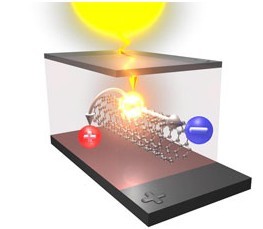Kunshan Liyue Hardware Products Co.,Ltd , https://www.fixlyhardware.com
Nanotube Organic Photovoltaic Battery
Researchers at the University of Würzburg in Germany are actively involved in the newly launched European POCAONTAS collaboration project, generating significant excitement. Their aim is to develop innovative carbon nanotube-based materials for photovoltaic applications. The European Union has pledged 3.5 million euros to support this ambitious initiative.
Attached below is an image showcasing some of the groundbreaking work being undertaken as part of this project.

These tiny pure carbon tubes, when structured into larger frameworks, present themselves as prime contenders for next-generation photovoltaic cells. "This material possesses numerous advantageous properties and holds immense potential for efficient energy conversion," explained Tobias Hertel, a distinguished professor at the University of Würzburg.
**Promising Material Properties**
The material boasts excellent stability and remarkable electron mobility, making it a fascinating candidate for photovoltaic applications. Its ability to absorb a broad spectrum of light, something few other materials can achieve, makes it particularly well-suited for energy conversion purposes.
"Even though we've been exploring the realm of organic optoelectronics for several years now, our initial experiments with high-quality nanotubes were truly eye-opening and inspiring," added Professor Vladimir Dyakonov, a key collaborator on the Würzburg team.
Scientists are keen to delve deeper into the possibilities of carbon nanotube polymers for photovoltaic materials. Central to their efforts will be the creation of what they term "functional composite systems." Advanced spectroscopic techniques will be employed to examine the unique characteristics of these systems.
**Nurturing Young Talent**
Beyond advancing scientific knowledge, fostering the growth of PhD students and postdoctoral researchers is another critical objective of the project. Collaborating institutions have crafted specialized curricula, facilitated industrial internships, and organized workshops tailored to equip young scientists with the skills and experience necessary for successful academic careers.
**Collaboration and Coordination**
The project, titled POCAONTAS (a carbon polymer nanotube active system for solar power generation studies), brings together experts from various fields. In addition to the Chemistry and Physics teams led by Professors Hertel and Dyakonov at Würzburg, research groups from Munich and five other European nations are contributing their expertise. Two Bavarian companies are among the participating organizations, while overall coordination falls under the purview of Professor Larry Lüer from Madrid.
Under the framework of the "Initial Training Network" program, the European Union will provide funding amounting to 3.5 million euros over four years, commencing on November 1, 2012. Given the intense competition for grants, securing such substantial backing reflects the exceptional quality of the POCAONTAS project. As Professor Hertel remarked, "Only a handful of top-tier initiatives stand a chance of receiving this level of financial support."